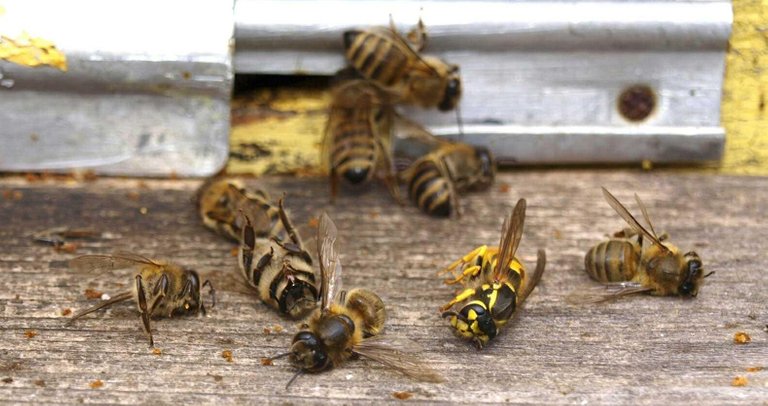
PhD understudy Harry Siviter, close by Professor Julia Koricheva, Professor Mark Brown, and Dr Elli Leadbeater (all from Royal Holloway) joined information from an extensive number of concentrates in which honey bees that had been presented to pesticides needed to find out about flower fragrances, a test that is ordinarily used to quantify learning and memory in honey bees.
Their examination uncovers that even at low field-reasonable measurements, pesticides have critical negative impacts on honey bee learning and memory, with working drones presented to pesticides less inclined to learn and remember a compensating aroma. Learning capacities are a crucial part of the scan for nourishment in honey bees, since people must recollect what sort of blossoms to visit, where to discover them, which blooms they have as of late depleted of nectar, and how to discover the path back to the hive.
Harry Siviter stated: "Strategy producers require powerful data about the effect of bug sprays on pollinators in the event that they are to create suitable direction for manageable honey bee wellbeing."
"Our outcomes demonstrate that, when joining information gathered from an extensive variety of studies, bug sprays have a huge negative effect on honey bee learning and memory. This happens even at the low levels of pesticides that honey bees would routinely experience in the field.
"Critically, as the close aggregate European prohibition on neonicotinoid bug sprays is set to be actualized in December this year, our outcomes demonstrated that non-neonicotinoid bug sprays likewise have a strong noteworthy negative effect on honey bee learning and memory.
"Our discoveries along these lines feature the requirement for strategy producers and controllers to progressively consider the sub-deadly effects of bug sprays on critical pollinators, for example, honey bees."
Congratulations @arthurjnr! You received a personal award!
Click here to view your Board